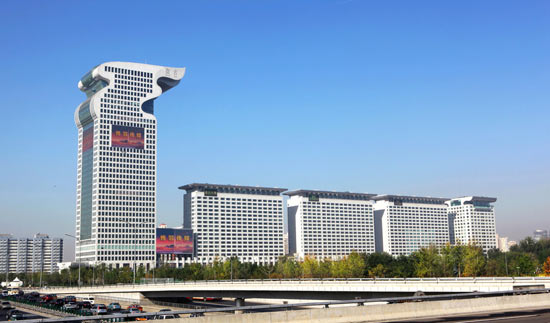
BAISHAN, Jilin, April 2 (Xinhua) -- A series of fatal accidents in China have triggered safety concerns over state-owned coal mines, which are believed to be much safer than private ones.
In the latest case, a total of 35 people died with another 11 missing in two gas blasts in Babao Coal Mine in Baishan City, in northeast China's Jilin Province on Friday and Monday.
Rescue efforts for the 11 are underway.
Sun Xuehui, leader of the rescue team, said subsequent explosions are possible, and as of 8 p.m. Tuesday rescuers were still unable to enter the shaft.
The chances of survival for those trapped are slim, said Sun.
According to a statement issued by the State Administration of Work Safety on Tuesday, the Jilin Provincial Government has requested that all coal mines in the province halt production for safety checks.
Seven officials responsible for the explosions have been placed under investigation, with Wang Shengyu, deputy manager of Tonghua Mining (Group) Co., Ltd. (Tonghua), being detained by police, government authorities said.
Among the seven are Zhao Xianwen, director of Tonghua, Wang Li, the company's deputy director, and Xu Xiaodong, deputy director of Jilin Province Coal Industry Group Co., Ltd.. They have been suspended from their posts, pending an investigation.
Babao is a mine of Tonghua, and the Jilin Province Coal Industry Group is the parent company of the mining firm.
Six people died, four were injured, and another 11 remain missing after an explosion occurred around 10 a.m. on Monday.
A preliminary investigation indicated that a mine operator saw smoke coming out of the mine at 8 a.m. and reported it to a principal, who arranged for 21 miners to go into the mine to carry out rescue operations without first obtaining instructions or permission.
The provincial government has demanded that local authorities spare no efforts to rescue the missing miners.
The explosion came after a similar blast hit the same mine around 10:40 p.m. on Friday, killing 29 people and injuring 12 others. Ning Lianjiang, chief engineer of Tonghua was among the dead. He had led a safety team of 41 technical workers to repair a reported gas leak when the explosion happened.
With annual production of 3 million tonnes, Babao Coal Mine is a state-owned colliery with more than 3,500 workers. Total investment of the mine reached 1.8 billion yuan (286 million U.S. dollars).
Local residents told Xinhua the mine was known for its safety management, and it even won a national "safety award" last year.
In addition to the explosions at the mine, other accidents have happened recently in state-owned coal mines.
An outburst of coal and gas at the Machang Coal Mine, which belongs to the Gemudi Company of the Guizhou Water and Mining Group in southwest China's Guizhou Province, killed 25 on March 12.
On Jan. 18, 13 miners died in a gas blast at the state-owned Jinjia Coal Mine, operated by the Guizhou Panjiang Clean Coal Co. Ltd., in Liupanshui City of Guizhou Province.
On Nov. 24, 2012, 23 miners were killed and five others were injured in a mine and gas outburst in Xiangshui Coal Mine operated by Pannan Coal Exploitation Co., Ltd.
Huang Yuzhi, deputy head of State Administration of Coal Mine Safety, said major coal mine accidents had been rare in the large state-owned coal businesses, which led to safety ignorance from the management of these companies.
To improve the safety conditions of coal mines, the Chinese government requested that state-owned companies merge private ones from 2009. They were believed safer compared with the loosely-managed private mines, which were reluctant to pour funds to improve safety.
The merged super-large state-owned mining companies, however, have led to new problems.
Zheng Baoshan, professor with the Institute of Geochemistry under the Chinese Academy of Sciences, said these companies, due to scale and tax revenue they brought to local economies, became too influential to be supervised by watchdogs.
"They often supervise themselves, and relevant penalties to responsible managers are too light if any accidents happen," said Zheng.
Experts urge the government to link production safety, income and careers of state-owned managers, and, in cases of promotion, veto the leaders who are responsible for any accidents.
Zheng also advised establishing an inspector system, under which inspectors are entitled to request any mines' production halt if any hidden hazards are found.
















 Heavy rainfall hits S China's Guangxi
Heavy rainfall hits S China's Guangxi


![]()
